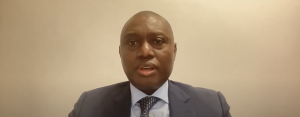HANS STOISSER
Digital Society – how to avoid the mistake of the 1950s
In the run-up to the Global Peter Drucker Forum, taking place in Vienna on November 5 and 6, 2015, a nicely featured blog series builds up momentum. A very insightful blogpost comes from Vlatka Hlupic:
Let’s get the future right this time
Vlatka compares current times of transition to a digital society with the 1950s and 1960s in Western Europe when people guessed how the world would look like in 2000. She argues that in those days thinking on the future was dominated by those who had been most familiar with new technologies, the engineers themselves. So we had “architects’ drawings of super-highways, urban roads, space-rockets and smaller flying vehicles.”
With the consequence that today we have to clean up wrong developments, from climate change caused by the extensive use of carbon-based fuels to the demolition of community areas in our cities caused by free individual car traffic.
How will it be this time with digitalization and automatization? And all those new technologies linked to Artificial Intelligence and Big Data? Are we again “creating” the future by picturing all those things which are possible? Instead of using our thoughts on things people need? Aren’t again mainly those people and organizations telling us how the future will look like who are themselves developing new technologies, as programmers, IT-researchers and IT-companies? “Are we making the same mistake again in the 21st Century?”, asks Vlatka.
Technology should serve people
Yes, of course, everybody says. However, it is easily said and easily agreed upon. But how can we really adapt technology to the needs of people in a world with an unpredictable future, unknown opportunities and an unlimited number of possibilities?
A change in mainstream management is an important starting point. Because management is the operating system of any organization. And organizations are the backbone of our Knowledge Society and hence the backbone of the development of new technologies.
The Global Peter Drucker Forum, the Agile World, Management 3.0 and the like are working on this change. Claiming our Humanity. Managing in the Digital Age – is this year’s theme of the Global Peter Drucker Forum.
Vlatka Hlupic’s take is summarized in her new book The Management Shift:
• From a controlling mindset to an empowering one,
• From setting rules to establishing principles,
• From issuing instructions to creating teams,
• From overseeing transactions to building alliances,
• From a focus on short-term profits to serving all stakeholders.
Very nicely put together. For me, Vlatka is part of the humanistic management movement which tries to put the human being into the focus. Changing mainstream management increases prospects that the future digital society will serve people. And hence the probability of not making the same mistake as in the 1950 and 1960s.
***
See also:
People Focused Management and the Digital Age
The topic Agile World and the Digital Enterprise we will also discuss in our Workshop in Vienna on September 24, 2015, Details here.




Hans,
Thank you for bringing the commentary to my attention.
In my work I attempt to address the prospects from Robot/AI/digital tech. on the course for the economy.The fallout from the 60s revolution has had its visible side-effects. (Though did not notice in the comment the beneficial aspects from the period. Who would opt to go back in time to the 50s/60s. Rural America was still without electricity.)
The fall-out from the current revolution could be more insidious. The effects from CO2 may be alarming. Surrendering our intelligence to an inanimate world be dreadful. That is the concern in my work.